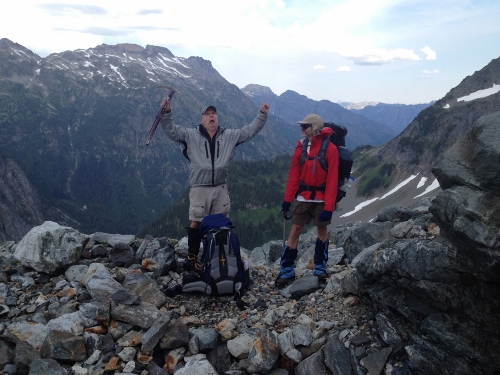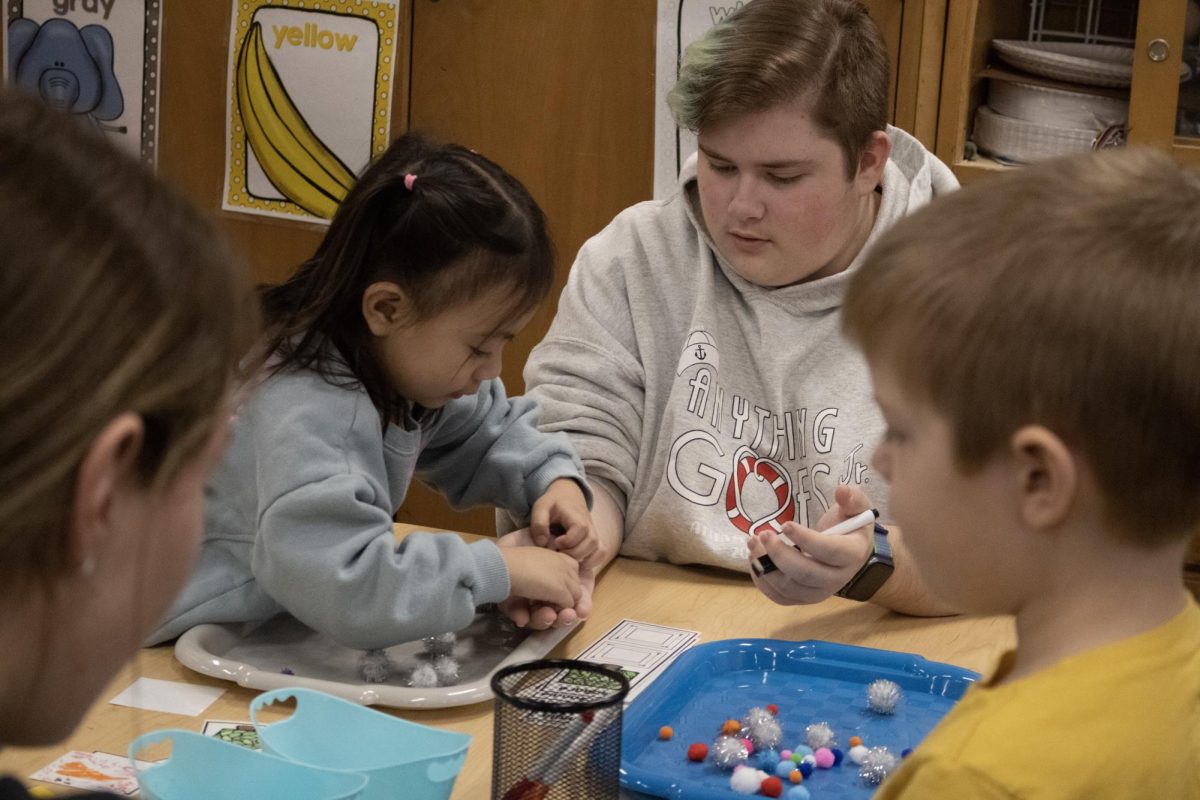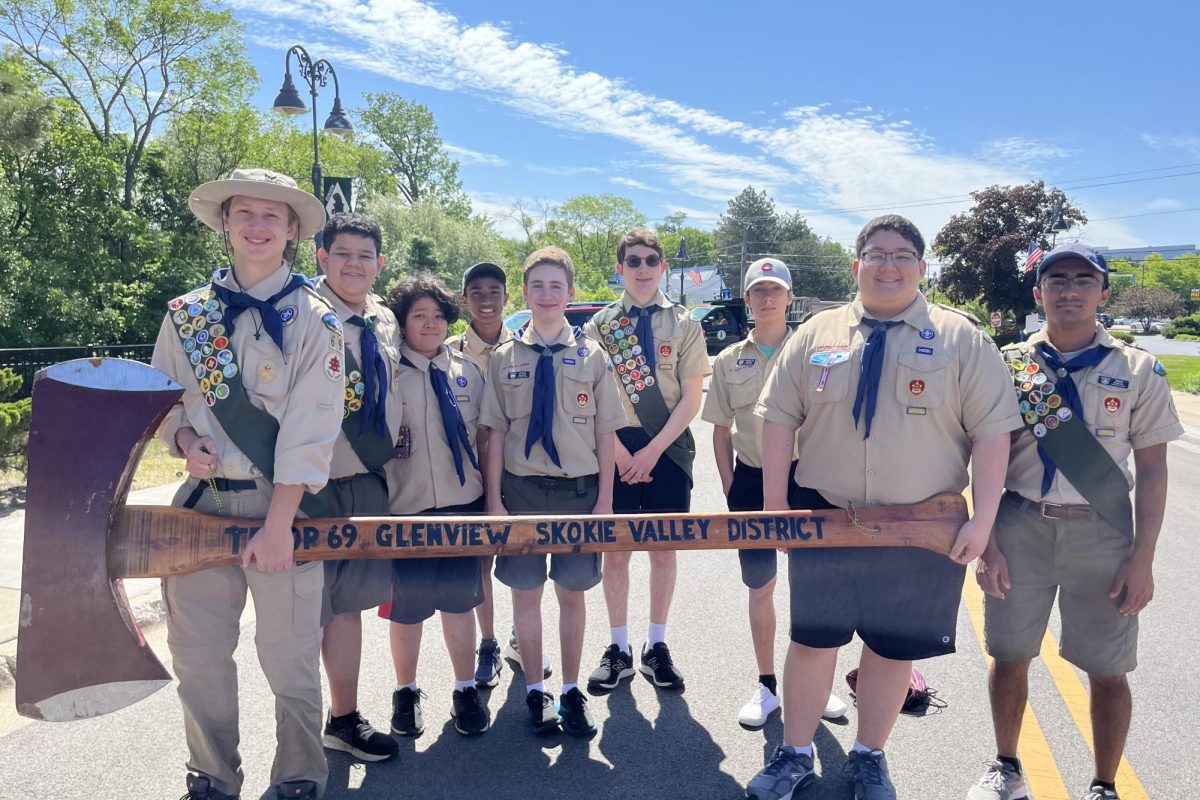From getting their rental car towed to having a near-death experience, TV/Broadcasting teacher Mark Ferguson and Dr. James Shellard, student activities director, went through the adventure of traversing through the Cascade Mountains in Washington.
Shellard and Ferguson have been friends since Shellard first started working at South in 1990, according to Ferguson.
“[Shellard and I] have been close and we have done a lot of climbing together, a lot of mountains together, a lot of outdoor adventures together,” Ferguson said.
According to Shellard, this time they went on a traverse, which is a hike through mountains with the option of climbing addtional mountains, if desired. According to Ferguson, they went up to about 7,000 feet and stayed at that altitude for the duration of their trip.
“We’re not in a national forest, we’re not in a national park, we’re [in the] back country,” Shellard said.
Shellard and Ferguson were startled starting on the first night, which Shellard describes as a dangerous one.
“The first night there we had this huge lightning and thunder storm,” Shellard said. “Winds that were probably 50, 60 mph. The tent was being blown sideways, and I had to put my knees up against the side of the tent to have it not collapse.”
Their adventures had only just begun. The plan for their second day was to go through a mountain pass, but they were unable to because the snow bridges were too thin, Shellard said.
“When you walk across the snow bridge there’s a concern you’ll fall through it,” Shellard said. “And if you fall through it then it’s a really long fall, even if you’re roped in. It’s very dangerous, so we didn’t feel safe there.”
They tried another pass, but the snow bridges there were too thin, so they climbed down the side of the glacier and tried to go up on the side next to the glacier. There was a lot of rock fall and loose rock, and it was very steep so they had to belay a lot. When they got to the top, they headed south along the ridge line and approached a buttress, or an outcrop on the rock, according to Shellard.
“As Ferg was coming around that outcropping of rock, we were all carrying 40lb packs, he slipped and fell backwards and spun around and grabbed onto some rock, but his feet were hanging off the edge of a 500-foot drop,” Shellard said. “It was a near-death experience, and nobody likes to see, or hear, or feel those, so it shook us awake a little bit just seeing that this was a lot more than we bargained for.”
At that point, they decided that maybe this was not the best climb for them to do, Shellard said.
“We were taken by surprise by how challenging the terrain was,” Ferguson said. “We thought we would be walking fairly much on level ground. It was very daunting […] the kind of situation where if you had a misstep, you would die. It was that dicey at times.”
They then turned around and came back down, according to Shellard.
“As we came down the rock field, that’s when I took my pack off and dropped it down like a foot, and since it was steep, [my backpack] took a weird bounce and fell into a crevasse,” he said.
According to Ferguson, the crevasse was about 30 feet deep, and they thought they had lost the pack.
“[Losing the pack] was horrifying because our tent was in it, the keys to the car, his wallet, I mean it was like, ‘Oh my God, if we don’t get this backpack out we’re in really deep trouble,’” Ferguson said.
Fortunately, there was a third person and friend with them, expert climber Steve Beck, who could rappel down and retrieve the backpack, according to Ferguson.
“It took about an hour, but we slept well that night,” Ferguson said.
On their third night, they went down to Kool-Aid Lake and there was a lightning storm again, according to Shellard. At this point, they had decided it was a better idea to turn back and not complete the five-day traverse.
“We had this near-death experience, we had my pack falling in a crevasse, we had these two thunder and lightning storms,” Shellard said. “And then on the way down when we got out, there was a mud slide that happened an hour after we left the park, that sealed everyone in there for 24 hours after us. [The mud slide] made the news, made the headlines—we missed it by an hour.”
Ferguson and Shellard both believe they made the right decision by turning back and not risking their safety.
“It was just a series of misadventures,” Shellard said. “And when climbing and on my trips, I don’t want an adventure, I want it to be boring. Because usually an adventure means that something went wrong somewhere, and this was quite an adventure because we had a lot of things that went wrong.”
However, they both enjoyed the beautiful scenery of the glaciers.
“My favorite part was the first night when we got to Kool-Aid Lake, where we cooked dinner and were just out there in that stillness and hearing the water running from the melting glaciers, and just being out in the world and just looking out and seeing this magnificent view of the Northern Cascade Mountains,” Shellard said.
While he enjoyed some parts of the trip, overall Shellard said he would not want to try the traverse again. However, Ferguson said he might like to take another crack at it. One aspect they enjoyed most was the time they got to spend together.










